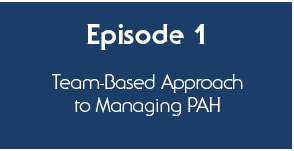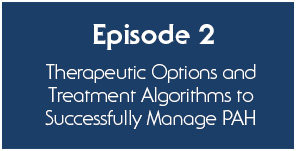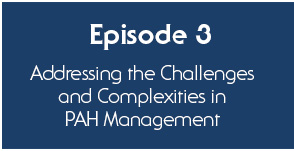 |
||
EDUCATIONAL OVERVIEW Pulmonary arterial hypertension (PAH) is a rare disease with significant consequences, including serious functional impairment and premature death. If left untreated, PAH is rapidly fatal. Fortunately, over the past decade, the knowledge and understanding of this disease has greatly expanded. Furthermore, the availability of effective and more convenient oral and inhaled medications has allowed clinicians to better individualize therapy to meet patient treatment goals. Though there is no cure for PAH, effective treatment can significantly slow disease progression and clinical worsening. Given the serious nature of this disease and its rapid progression, optimal treatment selection is essential. The Role of the Pharmacist Given the complex and individualized nature of PAH therapy, pharmacists must have a full understanding of treatment algorithms, disease-specific therapies, and long-term monitoring recommendations based on evidence-based guidelines. As the armamentarium to treat PAH continues to expand, pharmacists must make efforts to stay informed of the latest findings in order to contribute to the optimal management of these patients. TARGET AUDIENCE This continuing pharmacy education activity is planned to meet the needs of pharmacists in a variety of practice settings, including large and small healthcare systems, outpatient clinics, managed care organizations, long-term care facilities, and academia. This program is designed to target health-system pharmacists who are responsible for the safe and effective use of medications utilized for the treatment of patients with PAH. LEARNING OBJECTIVES Upon completing this activity, participants will be able to:
|
EDUCATIONAL FORMAT This webcast on demand is based on the CPE Midday Symposium conducted at the 50th ASHP Midyear Clinical Meeting & Exhibition.
Note: If you have received credit for attending the live symposium by the same name, you are not eligible to apply for credit for this online version.
FACULTY
|
||||||||||||
| | ||||
Pharmacists For questions regarding the accreditation of this activity, please contact us at info@jointsponsor.com
Method of Participation and Instruction for Credit
Disclosure of Conflicts of Interest In accordance with policies set forth by the Accreditation Council for Continuing Medical Education (ACCME), Center for Independent Healthcare Education requires all faculty members and spouses/significant others with an opportunity to affect the content of a continuing education activity to disclose any relevant financial relationships during the past 12 months with commercial interests. A commercial interest is any entity producing, marketing, reselling or distributing health care goods or services consumed by or used on patients. Relationships with commercial interests and conflicts of interest resulting from those relationships must be revealed to the audience and resolved prior to the activity.Relevant relationships include roles such as speaker, author, consultant, independent contractor (including research), employee, investor, advisory committee member, board member, review panelist, and investigator. If a potential speaker or author indicates a possible conflict of interest, the conflict will be resolved by choosing another speaker or author for that topical area, or the slides, handouts, and/or monograph will be reviewed and approved by a qualified commercially-disinterested peer. |
Disclosures
Fee Hardware/Software Requirements Software/Hardware Connection Speed System Check Copyright Statement Privacy Policy Joint Providership Commercial Support This activity is supported by educational grants fromActelion Pharmaceuticals and United Therapeutics.
|
|||
START ACTIVITY |




